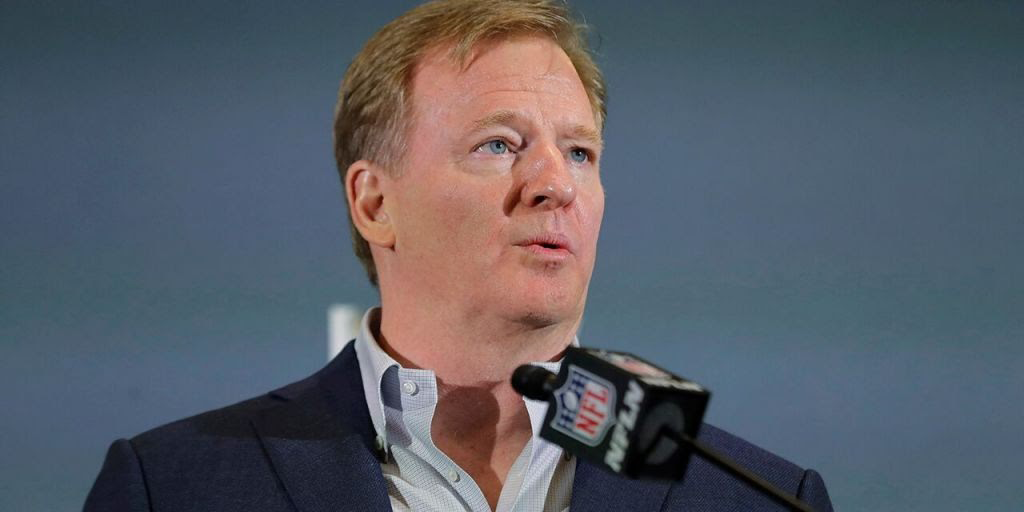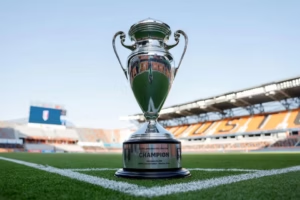NFL Commissioner Apologizes for His Response to Player Protests Amid National Racial Tension

Image courtesy of Fox News
By Garrett Farrell
In the midst of the protests stemming from the death of George Floyd, a national dialogue on race in America has grown more prominent, and American public opinion on the matter has shifted drastically. A strong indicator of the change in the mindset of the people is the change in the attitude of NFL administrators, including league Commissioner Roger Goodell, towards on-field protests by players, most notably by former-San Francisco 49ers quarterback Colin Kaepernick.
“We, the National Football League, admit we were wrong for not listening to NFL players earlier and encourage all to speak out and peacefully protest,” said Goodell in a statement made on the NFL’s Twitter account on June 5. “I personally protest with you and want to be part of a much needed change in this country.”
The controversy surrounding Kaepernick began in 2016 when the quarterback first kneeled during the national anthem. This action sparked a heated debate over what constituted disrespect of the flag, which was stoked by then-candidate Donald Trump, who referred to Kaepernick as a “son of a bitch,” and repeatedly called on NFL organizations to fire players who protested during the national anthem.
The debate over kneeling during the national anthem has resurfaced after the waves of protests following the deaths of George Floyd, Breonna Taylor, and Ahmaud Arbery. New Orleans Saints quarterback Drew Brees received backlash for saying that he would never agree with kneeling during the anthem, as he found it disrespectful to the flag.
After Brees’ response, athletes such as Los Angeles Lakers small forward Lebron James and 49ers cornerback Richard Sherman criticized Brees for not showing empathy towards the African American community, especially considering that Brees plays for a team in a city with a largely black population.
“That uncomfortable conversation you are trying to avoid by injecting military into a conversation about brutality and equality is part of the problem,” said Sherman in a Tweet condemning Brees’ statement.
Brees apologized for his statement several days later in a video that he posted to Instagram, saying that through conversations with his teammates, he came to realize that kneeling during the national anthem was “never about the flag.”
Shortly after Brees issued his first statement, NFL players, including Kansas City Chiefs quarterback Patrick Mahomes and Houston Texans quarterback Deshaun Watson, released a video demanding that the NFL acknowledge that it was wrong to force the silence of players who peacefully protested during the national anthem. This video led to the statement made by commissioner Goodell.
The NFL’s acknowledgment of wrongdoing during the 2016 protests reignited a discussion over Kaepernick’s place in the NFL and included many who believe that he should receive a second chance in the league.
“If he has the playing ability. He started off great, and then he didn’t end up very great in terms of a player. He was terrific in his rookie year. I think he was very good in his second year. And then something happened. So his playing wasn’t up to snuff.” said President Trump in a sharp departure from his stance on Kaepernick in 2016. “I would love to see him get another shot. But obviously he has to play well. If he can’t play well, I think it would be very unfair.”
President Trump’s comment highlights one of the complexities of NFL teams hiring Kaepernick: it would be high-risk with potentially no payoff. Despite the shift in the public opinion that has occurred since the death of George Floyd, only 52% of Americans support protests during the national anthem, meaning that a team that hires Kaepernick would likely upset a large portion of their fanbase.
The deal isn’t exactly sweetened by the fact that during the last 12 games Kaepernick played in the NFL he had a total quarterback rating (QBR) of 49.7. Put into perspective, an average quarterback will achieve a QBR of 50, and this was Kaepernick’s second straight season below that mark. This was also Kaepernick’s first season improving over his previous season’s QBR, meaning he was deteriorating as a quarterback almost every year he was in the NFL, and most NFL teams are not looking for a quarterback who declines more than he improves.
Whether or not Kaepernick will be signed by a team is still up in the air, although there have been reports that the Los Angeles Chargers have expressed interest in hiring him. No matter what, hiring Kaepernick will be a roll of the dice.







